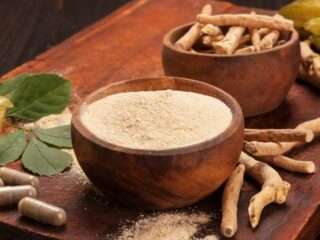Below are the general guidelines for dosing amlodipine. Note that these dosages may be adjusted on a case-by-case basis for individual patients. Always follow your prescribing physician’s instructions for taking amlodipine.
The following information comes from DailyMed, an FDA label information provider.
What if I miss a dose of Amlodipine?
According to the Mayo Clinic, if you miss a dose of amlodipine, you should take it as soon as possible. However, if it is almost time for your next dose, skip the missed dose and go back to your regular dosing schedule. Do not double doses.
What if I overdose on Amlodipine?
Overdosage might be expected to cause excessive peripheral vasodilation with marked hypotension and possibly a reflex tachycardia. In humans, experience with intentional overdosage of amlodipine besylate is limited.
Single oral doses of amlodipine maleate equivalent to 40 mg amlodipine/kg and 100 mg amlodipine/kg in mice and rats, respectively, caused deaths. Single oral amlodipine maleate doses equivalent to 4 or more mg amlodipine/kg or higher in dogs (11 or more times the maximum recommended human dose on an mg/m2 basis) caused marked peripheral vasodilation and hypotension.
If massive overdose should occur, initiate active cardiac and respiratory monitoring. Frequent blood pressure measurements are essential. Should hypotension occur, provide cardiovascular support including elevation of the extremities and the judicious administration of fluids. If hypotension remains unresponsive to these conservative measures, consider the administration of vasopressors (such as phenylephrine) with attention to circulating volume and urine output. As amlodipine besylate is highly protein bound, hemodialysis is not likely to be of benefit.
If you believe you or someone you know has overdosed on any medication call poison control and/ or 911 immediately.
How is Amlodipine administered?
Adults
The usual initial antihypertensive oral dose of amlodipine besylate tablets is 2.5- 5 mg once daily, and the maximum dose of 10 mg once daily.
Small, fragile, or elderly patients or patients with hepatic insufficiency may be started on 2.5 mg once daily and this dose may be used when adding amlodipine besylate to other antihypertensive therapy.
Adjust dosage according to blood pressure goals. In general, wait for 7 to 14 days between titration steps. Titration may proceed more rapidly, however, if clinically warranted, provided the patient is assessed frequently.
Angina: The recommended dose for chronic stable or vasospastic angina is 5-10 mg, with the lower dose, suggested in the elderly and in patients with hepatic insufficiency. Most patients will require 10 mg for adequate effect.
Coronary artery disease: The recommended dose range for patients with coronary artery disease is 5-10 mg once daily. In clinical studies, the majority of patients required 10 mg.
Children
The effective antihypertensive oral dose in pediatric patients ages 6-17 years is 2.5 mg to 5 mg once daily. Doses in excess of 5 mg daily have not been studied in pediatric patients.
How is Amlodipine supplied?
5 mg Tablets USP
Amlodipine besylate – 5 mg Tablets USP (amlodipine besylate equivalent to 5 mg of amlodipine per tablet) are white to off white, capsule shaped, biconvex, uncoated tablets with ‘ML’ and ’22’ debossed, on one side and plain on other side and supplied as follows:
NDC 33342-015-10 Bottle of 90
NDC 33342-015-12 Unit dose package of 100
10 mg Tablets USP
Amlodipine besylate – 10 mg Tablets USP (amlodipine besylate equivalent to 10 mg of amlodipine per tablet) are white to off white, round, biconvex, uncoated, tablets with ‘ML’ & ’23’ debossed, on one side and plain on the other side and supplied as follows:
NDC 33342-016-10 Bottle of 90
NDC 33342-016-12 Unit dose package of 100
Storage
Store at 20º – 25º C (68º – 77º F); See USP Controlled Room Temperature and dispense in tight, light-resistant containers (USP).
Disclaimer: this article does not constitute or replace medical advice. If you have an emergency or a serious medical question, please contact a medical professional or call 911 immediately. To see our full medical disclaimer, visit our Terms of Use page.






